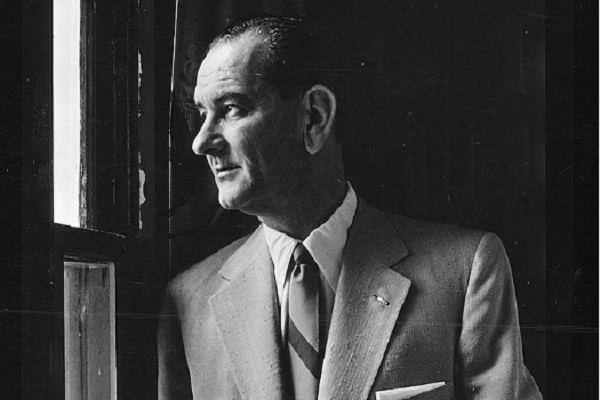
–>
July 12, 2023
As with many semantic corruptions, the left started it. They trivialized the term “denialism” by applying it not to the denial of a real tragedy, but to skepticism about an imagined climate doomsday. I would like to rehabilitate the phrase a little bit, if I could, by applying it to the denial of an historic phenomenon as real as the Holocaust and potentially as tragic.
‘); googletag.cmd.push(function () { googletag.display(‘div-gpt-ad-1609268089992-0’); }); document.write(”); googletag.cmd.push(function() { googletag.pubads().addEventListener(‘slotRenderEnded’, function(event) { if (event.slot.getSlotElementId() == “div-hre-Americanthinker—New-3028”) { googletag.display(“div-hre-Americanthinker—New-3028”); } }); }); }
I refer here to the havoc wrought by the 1960s. Havoc came in many forms: the zeitgeist shift that undermined personal responsibility, the programs that undermined the family, and the social upheaval that glorified casual sex and single parenthood.
Only by denying the fallout from the 1960s did Justices Sonia Sotomayor and Ketanji Brown Jackson make even the illusion of sense in their recent dissents on the affirmative action cases before the Supreme Court. After a year of research for my new book, Untenable: The True Story of White Ethnic Flight from America’s Cities, I know all too well the audacity of that denial.
To be fair to the ’60s, the effects of this progressive mind virus had begun to surface in the previous decade. As early as 1957, for instance, Stephen Sondheim was satirizing it in his lyrics to West Side Story’s “Gee, Officer Krupke.” The psychiatrists, social workers, and judges who believe that “society” has played the young gang-bangers “a terrible trick” all come in for a deserved ribbing.
‘); googletag.cmd.push(function () { googletag.display(‘div-gpt-ad-1609270365559-0’); }); document.write(”); googletag.cmd.push(function() { googletag.pubads().addEventListener(‘slotRenderEnded’, function(event) { if (event.slot.getSlotElementId() == “div-hre-Americanthinker—New-3035”) { googletag.display(“div-hre-Americanthinker—New-3035”); } }); }); }
But there was nothing funny about what was to come. Almost unnoticed, a labyrinth of soul-crushing social programs was taking root and would soon be institutionalized by the Lyndon Johnson administration under the rubric of “The Great Society.”
At the time, the only person brave enough — or crazy enough — to call attention to the damage done by these programs was Johnson’s undersecretary of labor (and later U.S. senator), Daniel Patrick Moynihan. In his remarkably prescient report, “The Negro Family: The Case for National Action,” Moynihan sounded the alarm in 1965, the same year the Great Society was launched.
“The evidence — not final, but powerfully persuasive — is that the Negro family in the urban ghettos is crumbling,” Moynihan warned. Causing the dissolution were the sundry social programs that promised women financial security on the real but rarely spoken condition that there be no married father in the household.
Until about 1960, the income gap between backs and whites was narrowing. After 1960, with the surge in single-parent households, it began to reverse itself. The passage of the Civil Rights Act of 1964, Moynihan believed, would only increase frustration.
As a result of the “full recognition of their civil rights,” blacks were expecting that equal opportunities would “produce roughly equal results, as compared with other groups,” but, added Moynihan, “This is not going to happen.”
The civil rights movement was designed to combat institutional white racism. With that battle won, movement leaders had to pretend the battle was still raging. To preserve that illusion, they pressured Johnson to silence Moynihan. Not wanting to alienate a voting bloc whose loyalties he had hoped to purchase, Johnson exiled Moynihan and deep-sixed his report.
‘); googletag.cmd.push(function () { googletag.display(‘div-gpt-ad-1609268078422-0’); }); document.write(”); googletag.cmd.push(function() { googletag.pubads().addEventListener(‘slotRenderEnded’, function(event) { if (event.slot.getSlotElementId() == “div-hre-Americanthinker—New-3027”) { googletag.display(“div-hre-Americanthinker—New-3027”); } }); }); } if (publir_show_ads) { document.write(“
With Moynihan publicly spanked, other would-be critics fell silent. Those who chose to tell the truth about the fatherhood crisis in the black community did so at their own risk. Among the most notable dissidents was comedian Bill Cosby.
In the early years of this century, before his fall from grace, Cosby spoke out forcefully to men and boys at forums across the country. “Men, if you want to win, we can win,” Cosby said at one typical spot. “We are not a pitiful race of people. We are a bright race, who can move with the best. But we are in a new time, where people are behaving in abnormal ways and calling it normal.”
The progressive establishment had no use for talk that questioned systemic racism. With the establishment’s backing, rising “antiracist” rock star Ta-Nehisi Coates made his bones putting Cosby in his place. In an overpraised 2008 Atlantic article, Coates dared to scold Cosby for his presumed ignorance of black history.
“His historical amnesia — his assertion that many of the problems that pervade black America are of a recent vintage — is simply wrong,” huffed Coates, “as is his contention that today’s young African Americans are somehow weaker, that they’ve dropped the ball.” The fact that Cosby was nearly 40 years his senior counted for nothing. Coates knew he had the progressive wind at his back. History was his to dictate.
A month later, perhaps unaware of Coates’s ascendancy, presidential candidate Barack Obama echoed Cosby’s message in a Father’s Day speech at a Chicago church. “What too many fathers also are is missing, missing from too many lives and too many homes,” he lectured his audience. “They have abandoned their responsibilities, acting like boys instead of men. And the foundations of our families are weaker because of it.”
Jesse Jackson might have let these general comments pass. He had once said similar things himself. When, however, Obama spelled out the statistical consequences of fatherlessness in regards to education, employment, and incarceration, he jeopardized the “systemic racism” paradigm that made Jackson wealthy. He had to shut Obama up.
Three weeks later, a hot mic at a Fox News studio picked Jackson up saying, “See, Barack been, um, talking down to Black people on this faith-based — I wanna cut his nuts out.” If the words weren’t enough to silence Obama, the cutting motion he made with his hand did the trick.
Ketanji Brown Jackson had no more use for Obama’s truth-telling than Jesse did. “Gulf-sized race-based gaps exist with respect to the health, wealth, and well-being of American citizens,” writes Jackson. “They were created in the distant past, but have indisputably been passed down to the present day through the generations.”
The 53-year-old Jackson and the 69-year old Sotomayor seem to have both sleep-walked through their charmed, affirmative action–greased lives. The income and educational gaps were not “created in the distant past.” They were created on their watch and largely by their own political party.
Neither Jackson nor Sotomayor acknowledges that those gaps were narrowing up and through the 1950s. Neither says a word about fatherlessness or family breakdown and the accompanying reversal in economic momentum. Sotomayor, for instance, mentions President Andrew Johnson three times but never once mentions President Lyndon Johnson. No one mentions Moynihan.
One argument for affirmative action that Jackson thinks particularly convincing is that the median wealth for white families — $188,000 — is reportedly close to eight times higher than that for black families — $24,000.
The critical word here is “median.” This means that half of black families have accrued more than $24,000 in net worth, half less. Jackson cites every reason why this might be so — slavery, Jim Crow, redlining, sharecropping — except for the reason that it is so: family breakdown.
As of 2021, some 64 percent of black children lived in a single-parent household, a figure nearly three times that of whites, four times that of Asians, and more than twice the number that alarmed Moynihan. On average, single mothers earn about 20 percent of what married couples do. Entitlement programs may sustain those dependent on them, but they don’t build equity.
Through the Community Reinvestment Act, the Clinton administration made a misbegotten effort to create equity for low-income people by forcing lenders to provide them home loans. To remind yourself how that experiment turned out, google “subprime crisis of 2008.”
That crisis was really just another aftershock from the upheaval of the ’60s. Neither Jackson nor Sotomayor makes any mention of it or its effect on black net worth. Not content with rewriting the Constitution, they’re equally pleased to rewrite history.
Jack Cashill’s new book Untenable: The True Story of White Ethnic Flight from America’s Cities is now available in all formats.

Image: Lyndon Johnson. Credit: Picryl.
<!–
–>
<!– if(page_width_onload <= 479) { document.write("
“); googletag.cmd.push(function() { googletag.display(‘div-gpt-ad-1345489840937-4’); }); } –> If you experience technical problems, please write to [email protected]
FOLLOW US ON
<!–
–>
<!– _qoptions={ qacct:”p-9bKF-NgTuSFM6″ }; ![]() –> <!—-> <!– var addthis_share = { email_template: “new_template” } –>
–> <!—-> <!– var addthis_share = { email_template: “new_template” } –>





